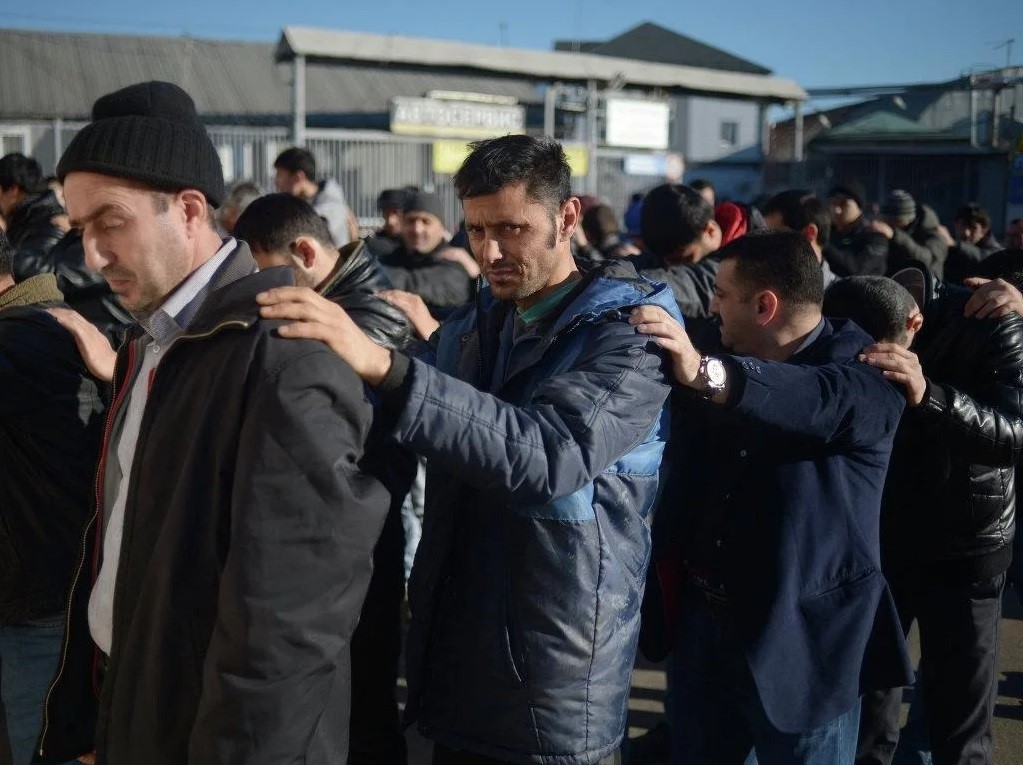New regulations on the expulsion of migrants in Russia
In a vademecum aimed in particular at workers from Central Asia all the behaviour to avoid in order not to suffer the measure, specco accompanied by a ban on re-entry for a period of between 3 and 5 years. A further 20 new articles of the Administrative Code have been added to the offences already reported directly by the police.
Moscow (AsiaNews) - In recent days, the Russian Ministry of the Interior has presented a bill to further expand the list of grounds on which a foreigner can be expelled from the Russian Federation by an administrative court decision. They are in addition to those that lead directly to deportation for criminal reasons reported directly by law enforcement and security services. Journalist Alija Khamidullina of Asia-Plus summarised them for the many migrants from Central Asia who are most affected by these measures.
Expulsion is generally decided for violations of the legislation regulating the status of migrants in Russia, and is associated with a ban on re-entry into the country for a period of between one year and indefinitely (usually a term of between three and five years is decided). Some articles of the Administrative Code provide for compulsory repatriation, others leave the decision to the courts. The grounds for immediate deportation, which are specified by the new legal measures, are illegal drug trafficking, the use of drugs without a prescription, propaganda of non-traditional sexual relations and sex change, especially in the case of minors, propaganda of paedophilia, violation of the rules of entry into the Federation or the regime of stay on its territory, illegal work in Russia and refusal of repatriation already decreed.
With regard to the reasons that may lead to repatriation by decision of the judges, they are explained first of all as violations of the regime of the state borders of Russia, especially in the border areas and places of access to the federal territory, and failure to comply with whatever restrictions are decided with regard to the various activities carried out within the Federation. In addition, expulsion is decided when certain violations are repeated, concerning the rules of residence in the Federation and non-compliance with the time limits for obtaining a driving licence, one of the rules least respected by many drivers or taxi drivers of Central Asian origin.
However, since January this year, there have been changes in the administrative code that provide for the possibility of avoiding expulsion by paying fines or being assigned to compulsory work. This is the case when one has been in Russia for a long time, for family reasons, especially if there are minor children, if one has a fixed salary and a home of one's own, for regular payment of taxes, law-abiding behaviour and other cases at the discretion of the judge, who has the power to assess these and other circumstances ‘based on inner convictions’.
The new law, however, introduces 20 new articles in the code, which carry the penalty of expulsion from Russia. These concern reneging on orders given by a public official of the police or other law enforcement agencies, handing over false information to migrant registration offices, acts of vandalism and minor violence, public demonstration of Nazi or extremist symbols, use of firearms outside the established norms or in places not intended for them, appeals to terrorist or extremist activities on internet networks or in other forms, and other issues.
Khamidullina explains in detail all these circumstances, not only to help avoid deportation, but above all to avoid being punished with a ban for several years on re-entry into Russia, which would really make it difficult to organise the lives of those who have no other resources besides work migration in Russia. Advice is also given on how to appeal in the face of such punishments, taking advantage of the assistance of groups and associations present on Russian territory, in particular to help Central Asian citizens in this period of great restrictions, and persecution, even very little motivated.
12/02/2016 15:14







.png)










